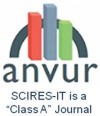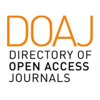Abstract
The aim of this study is the creation of a multimedia totem with the use of video mapping techniques, representing a particular form of augmented reality, in order to provide new means different from the existing ones- for museum enjoyment. The object of the totem was the creation of a documentary about the full scale reproduction of block NXLVI of the north frieze of the Parthenon. With the words “augmented reality” we mean the addition of more information than what the observer would normally perceive, mediated by the use of a computer. Thus the human sensory perception is enhanced by information generally manipulated and electronically channeled that would otherwise not be perceived by the five senses. Three main aspects define the multimedia totem: indoor use of augmented reality, it’s use for the enhancement of cultural heritage, and the digital anastylosis that makes it possible to reconstruct the missing part directly on the element or on a copy of it. These options provide the opportunity to engage different age groups with the expressive potential of augmented reality also in terms of performance, with the possible transformation of any surface into a dynamic display.
Keywords
Full Text:
PDFDOI: http://dx.doi.org/10.2423/i22394303v5n2p129
References
Article Metrics
Metrics powered by PLOS ALM
Refbacks
- There are currently no refbacks.
Copyright (c) 2016 Alessandra Cirafici, Donato Maniello, Valeria Amoretti

This work is licensed under a Creative Commons Attribution-NonCommercial-NoDerivatives 4.0 International License.
SCIRES-IT, e-ISSN 2239-4303
Journal founded by Virginia Valzano





